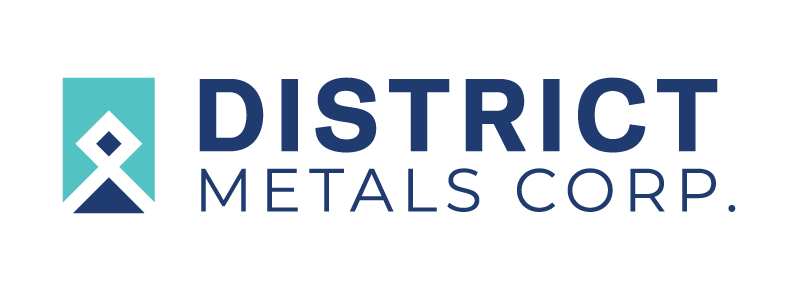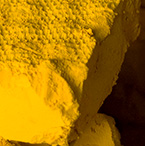District Metals - Positioning for Sweden's Nuclear Renaissance

District Metals controls a major uranium deposit in Sweden, poised to benefit from nuclear revival and potential lifting of mining moratorium.
- District Metals has consolidated 100% of the uranium-vanadium Viken deposit in Sweden, which is the second largest uranium deposit globally, containing over 1 billion pounds of uranium and 17 billion pounds of vanadium.
- The company is awaiting the expected lifting of Sweden's uranium moratorium this fall, which would allow them to advance the Viken project.
- District Metals plans to conduct an updated preliminary economic assessment (PEA) on Viken. To improve social acceptance and reduce CapEx, it aims for a smaller mining scenario than previous studies.
- The company sees potential for the Viken deposit to be economically viable due to its polymetallic nature, with uranium, vanadium, potash, and other metals contributing to the overall value.
- District Metals recently raised capital through a strategic investment, attracting institutional investors, and believes there is significant upside potential if the uranium moratorium is lifted in Sweden.
As the global energy landscape shifts towards cleaner and more secure power sources, uranium has re-emerged as a critical component in the quest for sustainable energy solutions. In this context, District Metals Corp (TSXV: DMX), a Canadian junior mining company, has positioned itself at the forefront of a potential uranium revival in Sweden. The company's recent acquisition of a majority stake in the Viken deposit, one of the world's largest uranium resources, could prove to be a game-changer not only for District Metals but also for Sweden's energy future and Europe's quest for energy independence.
Sweden's Changing Nuclear Landscape
Sweden, like many European countries, has been reassessing its energy policies in light of recent geopolitical events and the urgent need to address climate change. The country, which already derives about 40% of its electricity from nuclear power, has seen a significant shift in public and political sentiment towards nuclear energy.
Garrett Ainsworth, CEO and President of District Metals, explains the situation:
"The main shift that happened is when Russia invaded Ukraine and energy prices went up four times. That hurt... the Swedes are used to very low energy costs, and all of a sudden things went up like so much, and so it's really turned the public's sentiment to being pro-nuclear."
This change in attitude has been reflected in government policy. The current center-right coalition government, which came into power in September 2022, has made pro-nuclear energy a key part of its platform. This includes plans to potentially lift the country's uranium moratorium, which has been in place since 2018.
The Viken Deposit: A Strategic Asset
District Metals' uranium strategy is centered on the Viken deposit in central Sweden.
The Viken deposit is notable for several reasons:
- Size and Grade: It contains over 1 billion pounds of uranium and approximately 17 billion pounds of vanadium. While the uranium grade is considered low, the presence of vanadium and other valuable metals significantly enhances the deposit's overall grade and potential economic viability.
- Polymetallic Nature: In addition to uranium and vanadium, the deposit contains potash and other energy metals, which could contribute significantly to the project's economics.
- Simple Mining Scenario: The deposit is amenable to open-pit mining, which typically involves lower operational complexity and costs compared to underground operations.
- Historical Interest: In the last uranium cycle, the previous operator, Continental Precious Minerals, reached a market cap of $330 million based solely on the Viken deposit.
Interview with President & CEO, Garrett Ainsworth
Advancing the Viken Project
District Metals is taking a measured approach to advancing the Viken project. The company is awaiting the expected lifting of Sweden's uranium moratorium, which could happen as soon as this fall. Once this occurs, District Metals plans to initiate an updated Preliminary Economic Assessment (PEA).
Ainsworth outlines the company's strategy:
"The plan for Viken in an updated PEA is to make the mining scenario much smaller...that way, it's easier for the social license in terms of mine permitting. You're affecting a smaller area."
This approach differs from previous studies that considered larger-scale operations. By focusing on a smaller initial operation, District Metals aims to improve the project's chances of social and regulatory acceptance while also reducing the upfront capital requirements.
The Economic Potential
While detailed economic studies are yet to be completed, the potential value of the Viken deposit is significant. Ainsworth points to a recent scoping study by neighboring company Aura Energy on their portion of the same geological formation:
"Within that scoping study, the value of the rock is about $100 per ton, and then the OPEX is about $50 per ton. So you're clearing about $50 per ton in their scoping study."
This suggests a potentially robust operating margin, although it's important to note that detailed studies specific to District Metals' portion of the deposit are still required.
The Uranium Market
The global uranium market has seen renewed interest in recent years, driven by several factors:
- Growing recognition of nuclear power's role in achieving climate goals
- Concerns about energy security, particularly in Europe
- Supply constraints due to years of underinvestment in new mines
- Increasing demand from existing and planned new reactors globally
District Metals is positioning itself to capitalize on these trends, particularly within the European context. Sweden's potential emergence as a domestic uranium producer could have significant implications for the country's energy independence and its role in Europe's broader energy strategy.
Ainsworth emphasizes the strategic importance of the project:
"Europe needs a safe and secure supply of uranium. You've got France that's been talking to Sweden about building reactors in country."
Risks & Challenges
While the potential upside for District Metals is significant, investors should be aware of the risks and challenges:
- Regulatory Uncertainty: The lifting of Sweden's uranium moratorium is crucial for the project's advancement. While political signals are positive, there's always a risk of delays or changes in policy.
- Technical and Economic Factors: Detailed studies are still required to confirm the project's economic viability, particularly given the low-grade nature of the deposit.
- Market Conditions: While improving, the uranium market has been volatile in the past. The project's economics will be sensitive to long-term uranium and vanadium prices.
- Development Timeline: Even with favorable regulatory changes, developing a large-scale mining project takes time and significant capital investment.
The Investment Thesis for District Metals
- Large-scale resource: Exposure to one of the world's largest undeveloped uranium deposits.
- Strategic location: Positioned in Sweden, a stable jurisdiction with growing pro-nuclear sentiment.
- Polymetallic potential: Vanadium and other metals provide additional value beyond uranium.
- Low entry cost: Acquired and consolidated 100% of a billion-pound resource for minimal upfront cost.
- Potential near-term catalysts: Lifting of Sweden's uranium moratorium could drive significant revaluation.
- Experienced management: Leadership with a track record in uranium sector discoveries and development.
- Early-mover advantage: Well-positioned to benefit from Europe's push for energy independence.
- Macro tailwinds: Growing global recognition of nuclear power's role in clean energy transition.
- Multiple development options: Potential for smaller-scale initial operation to reduce capital requirements and improve social acceptance.
- Significant upside potential: Current market valuation provides room for substantial appreciation if the project advances successfully.
District Metals presents a unique opportunity in the uranium sector, controlling a majority stake in one of the world's largest undeveloped uranium deposits at a time when nuclear energy is gaining renewed attention. The company's success is closely tied to regulatory developments in Sweden, particularly the potential lifting of the country's uranium moratorium. While risks remain, including regulatory uncertainty and the need for further economic studies, the strategic nature of the asset and the changing energy landscape in Europe provide a compelling backdrop for potential value creation. Investors should closely monitor developments in Swedish energy policy and District Metals' progress in advancing the Viken project, as these factors will be crucial in determining the company's future prospects.
Macro Thematic Analysis
The resurgence of interest in nuclear energy, and by extension uranium, is driven by a confluence of global factors that are reshaping the energy landscape. Climate change concerns have pushed governments worldwide to seek low-carbon energy solutions, with nuclear power emerging as a crucial component in many countries' strategies to reduce greenhouse gas emissions while maintaining reliable baseload power.
Simultaneously, geopolitical tensions, particularly in Europe following Russia's invasion of Ukraine, have highlighted the importance of energy security and independence. This has led to a reevaluation of nuclear power in several countries, including Sweden, where public and political sentiment has shifted significantly in favor of nuclear energy.
The global push for electrification, particularly in transportation, is also driving increased demand for electricity, further underscoring the need for reliable, large-scale power generation. Nuclear energy, with its ability to provide consistent baseload power, is well-positioned to meet this growing demand.
Moreover, technological advancements in nuclear reactor design, including small modular reactors (SMRs), are addressing some of the historical concerns about nuclear power, potentially broadening its appeal and application.
On the supply side, years of underinvestment in uranium exploration and mine development have led to concerns about future supply shortages, particularly as demand is expected to increase. This supply-demand dynamic could support higher uranium prices in the coming years, benefiting companies with large, undeveloped resources like District Metals.
"Europe needs a safe and secure supply of uranium."
This statement from CEO Garrett Ainsworth underscores the strategic importance of domestic uranium resources in Europe, positioning companies like District Metals at the forefront of a potential uranium renaissance in the region.
Analyst's Notes




Subscribe to Our Channel
Stay Informed












































